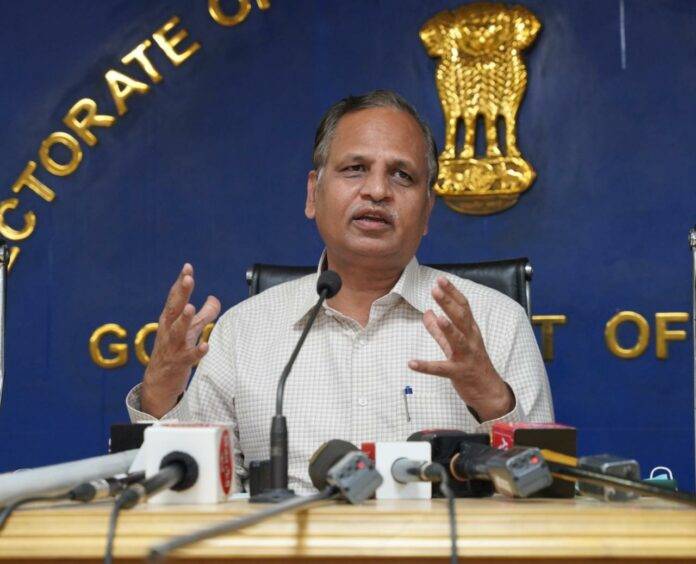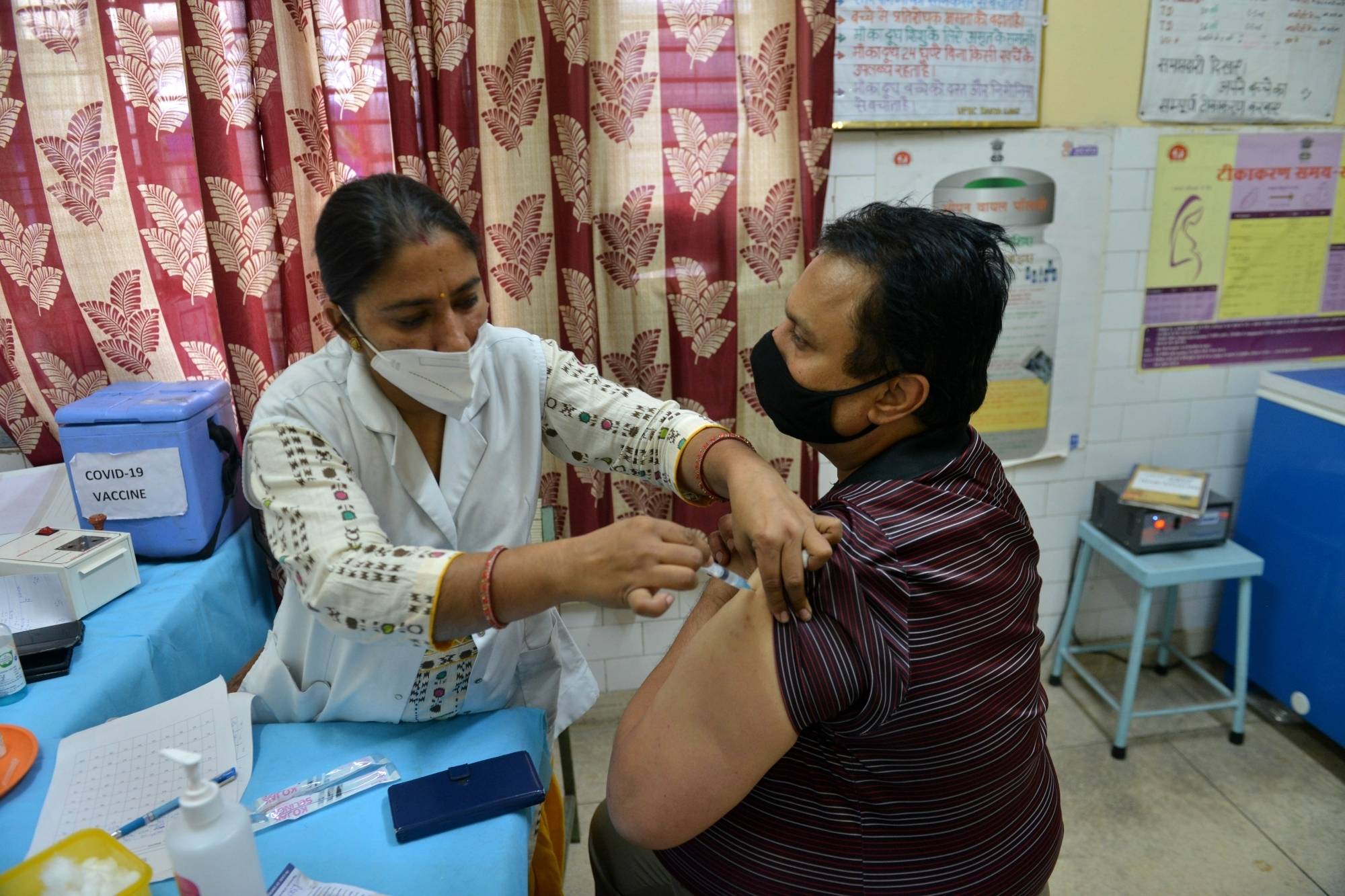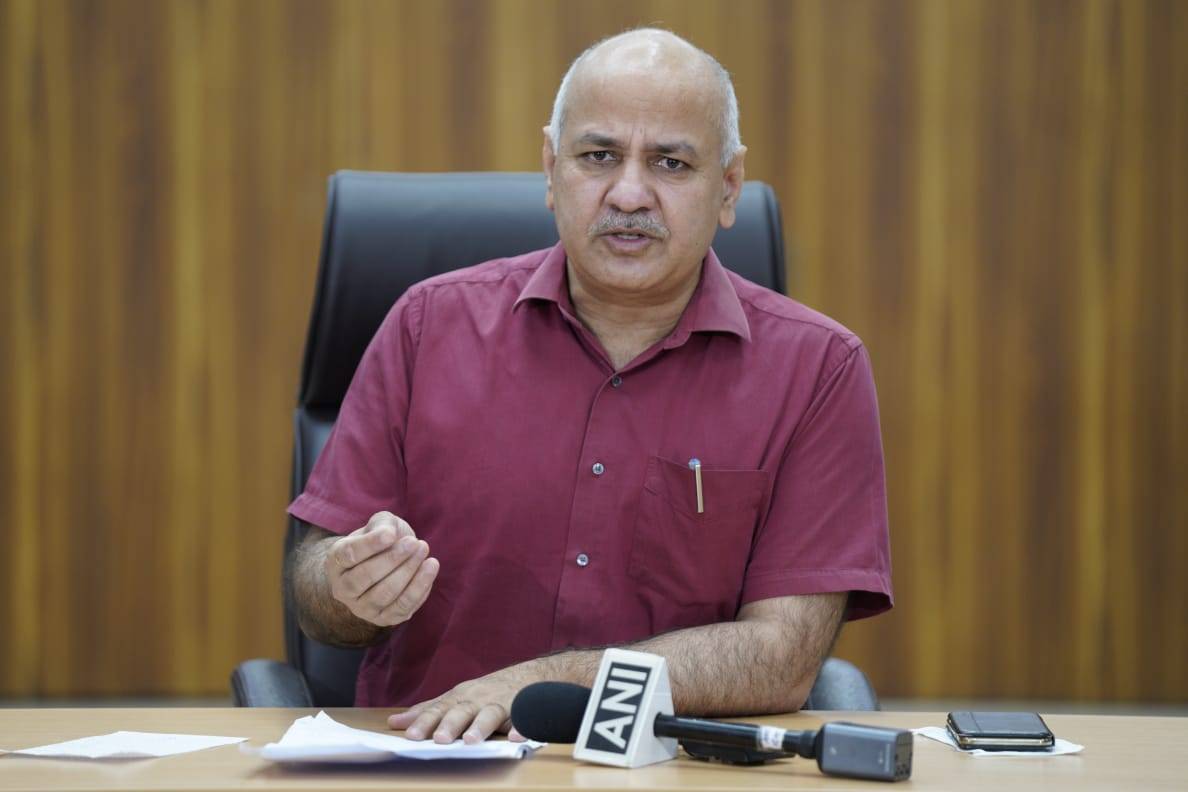New Delhi: Delhi Health Minister Shri Satyendar Jain in his video conferencing meeting with Dr Harsh Vardhan, Union Health Minister, requested the centre on a number of concrete fronts. He stressed upon how private players like Serum Institute of India and Bharat Biotech are generating a mammoth profit of ₹16000 crore on 100 cr doses, and considering the pandemic an opportunity to generate enormous unnatural profits. He elaborated that assuming a profit of ₹10 per dose, the manufacturing company produces 6 crore doses per month (supplies 3 crore to centre, 1.5 crore to centre & state each), it incurs ₹30 crore profit from centre, ₹240 crore from states & ₹690 crore profits from pvt. The total of which comes out to be approximately ₹960 cr & per crore profit would be ₹160 cr. So, on 100 crore doses, a profit of ₹16000 Cr. Hence, Shri Jain drew the attention of the authorities and stated that a rate of ₹150 should be capped for all, centre, state & private entities. Even at ₹150 the companies are incurring enormous profits. Another most compelling request he presented to the centre was for One Nation, One Tender policy, as a tender from different states would not put India in a good light. He also went on to highlight the loopholes that CoWIN software suffers from, and claimed that Delhi has neither been informed anything nor been supplied any doses of Sputnik V vaccine.
Shri Jain said, “In a video conferencing meeting with the Union Health Minister Shri Dr Harsh Vardhan, I raised three concrete points which I would like to present here. First, for the vaccines being purchased from overseas nations, instead of every state preparing its own tender, the centre should prepare one for the entire nation, and purchase it on behalf of all the states. One Nation, One Tender policy should be implemented, keeping in view that a tender from different states would not put India in good light.”
In view of the shortage of vaccines, Shri Jain presented a compelling point, in which he added, “Second point, the two companies preparing the two vaccines Covishield and Covaxin, must share the formula for preparation of these vaccines to other companies as well. It is widely known that India is home to the biggest and most prominent vaccine manufacturers in the world. Hence, a number of companies are capable of manufacturing it and mobilising it into the market for the public.”
Throwing light upon the cost disparities and the colossal profit generated by manufacturers of two vaccines, Shri Jain inderlined the third request. Here, he elaborated, “Third point that I had portrayed in the meeting was, the manufacturers of Covaxin and Covishield have considered this crisis to be an opportunity to generate high profits. So, when Covishield is being supplied to the centre at ₹150, and at this rate. the Chairman has stated on-record that they are huge incurring profits. The company is manufacturing 6 crore vaccines every month. Even if we go by a profit of ₹10 per dose, and they give half of the vaccines to the centre, which is 3 crore, the estimated profit comes out to be ₹30 crore. Now, the same vaccine is being sold to the state governments at ₹300, which means the profit doubles, while the cost of production remains the same. Not only that, the same vaccine is being sold at ₹400 to private entities, and the profit incurred goes up to ₹260 per dose (considering that their cost of production would be ₹140). By this entire estimation, the company generates a humongous profit of ₹960 crores in just one month. Nonetheless, average profit when calculated around the same scheme of logic, comes at generation of profit of ₹160 over 1 single dose. India is home to a younger population, wherein more than 100 crore people are above 18 years of age. And for these 100 crore people, we need at least 200 crore doses, and if we take 100 crore doses from one company and the other 100 crore from another, both of them incur a profit of ₹16000 crore each. Now, coming to Covaxin, which is supplying vaccines at an even higher rate. Their rate to supply the centre is ₹150, to state ₹300, and ₹400 to private entities respectively. So by nature, their profit would be higher than what the manufacturers of Covishield are incurring. The request that we have thus put forward is, that a uniform rate applying to all, that of ₹150 to the centre, should be kept for all others as well, viz: state governments and private entities. This is because they are anyhow generating profit at this rate of ₹150 too, so why is this gap of rates higher than that being done? In times of such crisis when the nation is battling the atrocities of the pandemic, we cannot let the companies incur such huge profits. These are the three requests which I had put forth in the meeting with the Union Health Minister.”
Citing the necessity of delegating the CoWIN software to states, and the fact that not everyone in India, especially rural populace has a smartphone, Shri Jain added, “CoWIN software is completely handled by the centre. In this, online registration and scheduling of appointments is to be done. This is extremely difficult for those who do not have a smartphone and don’t know the English language. This should be left onto the states as to how they are going to facilitate the vaccination programme.”
Shri Jain lastly added that Delhi has not received any doses of the Sputnik V vaccine yet. He emphasised that the centre should supply sufficient vaccines at the earliest so that the Delhi government can facilitate mass vaccination programme and chalk out plans to inoculate on a large scale.










